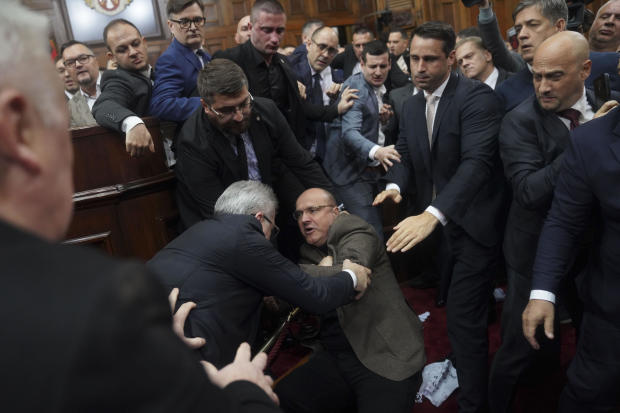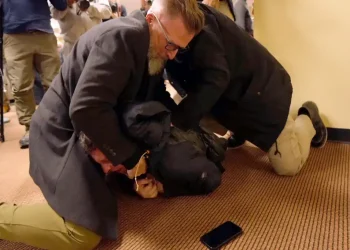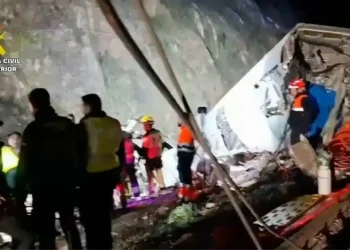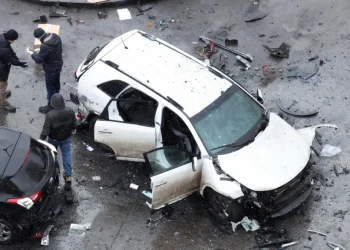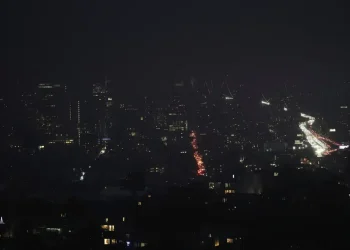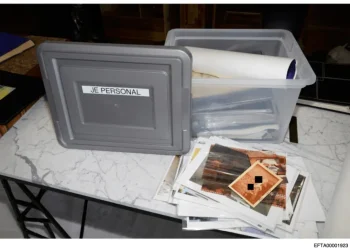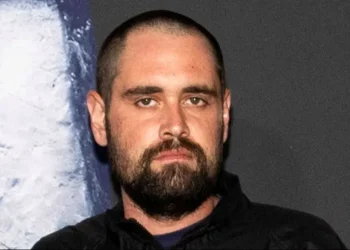Lawmakers Clash in Serbian Parliament Over Deadly Train Station Collapse
A heated brawl erupted in Serbia’s parliament on Monday as lawmakers clashed over the accountability for a rail station roof collapse that claimed 15 lives in Novi Sad earlier this month. The confrontation, marked by scuffles and banners, underscores growing tensions in the Balkan nation amid demands for transparency and justice.
Deadly Incident Sparks Parliamentary Tensions
On November 1, a newly renovated train station in Novi Sad suffered a catastrophic roof collapse, killing 15 people and injuring many others. The station, a critical transportation hub, had been recently upgraded through a partnership between Serbia and Chinese state companies. Critics allege corruption, inadequate oversight, and substandard construction as contributing factors to the disaster.
The opposition has demanded a full inquiry and held the ruling government responsible for the tragedy. During Monday’s session, opposition members displayed a banner with a blood-red handprint reading, “Blood is on your hands,” directly accusing the government of negligence. In response, ruling party lawmakers unfurled a banner stating, “Serbia wants to work; you want war.”
Physical Altercations and Political Accusations
Scuffles broke out as lawmakers from both sides attempted to seize each other’s banners, turning the parliamentary session into chaos. Ana Brnabić, Serbia’s parliamentary speaker, accused the opposition of attempting to destabilize the country with external support.
“These individuals are well-trained, organized, and likely paid to create chaos and undermine Serbia’s stability,” Brnabić claimed. She vowed to counter their actions with increased governance efforts.
Opposition leader Dragan Đilas criticized Brnabić for refusing to allow discussions on the government’s accountability for the Novi Sad tragedy. “By shutting down debates on critical issues, she has silenced parliament and ignored public outrage,” Đilas stated.
Nationwide Protests and Arrests
The roof collapse has fueled widespread anger across Serbia. Over 20,000 people recently gathered in Novi Sad in the largest protest the city has seen in decades. Demonstrators demanded justice for the victims and greater accountability in government infrastructure projects.
The incident has also led to legal action. Prosecutors have ordered the questioning of 11 individuals in connection with the collapse. Among those detained is Goran Vesić, Serbia’s former construction minister, who resigned shortly after the tragedy but denied responsibility.
“I cannot accept guilt for these deaths. Neither I nor my team bear any responsibility for this tragedy,” Vesić asserted.
Broader Implications
The incident has become a symbol of broader dissatisfaction with Serbia’s governance, especially regarding large infrastructure projects often funded through partnerships with Chinese state companies. Critics argue these projects lack proper oversight, contributing to systemic corruption and safety risks.
As Serbia grapples with the aftermath of the tragedy, the parliamentary turmoil reflects the mounting pressure on the government to address public concerns over transparency, accountability, and justice. The next steps, both in parliament and the courts, will be closely watched as the nation seeks answers and reforms.
This article was rewritten by JournosNews.com based on verified reporting from trusted sources. The content has been independently reviewed, fact-checked, and edited for accuracy, neutrality, tone, and global readability in accordance with Google News and AdSense standards.
All opinions, quotes, or statements from contributors, experts, or sourced organizations do not necessarily reflect the views of JournosNews.com. JournosNews.com maintains full editorial independence from any external funders, sponsors, or organizations.
Stay informed with JournosNews.com — your trusted source for verified global reporting and in-depth analysis. Follow us on Google News, BlueSky, and X for real-time updates.
